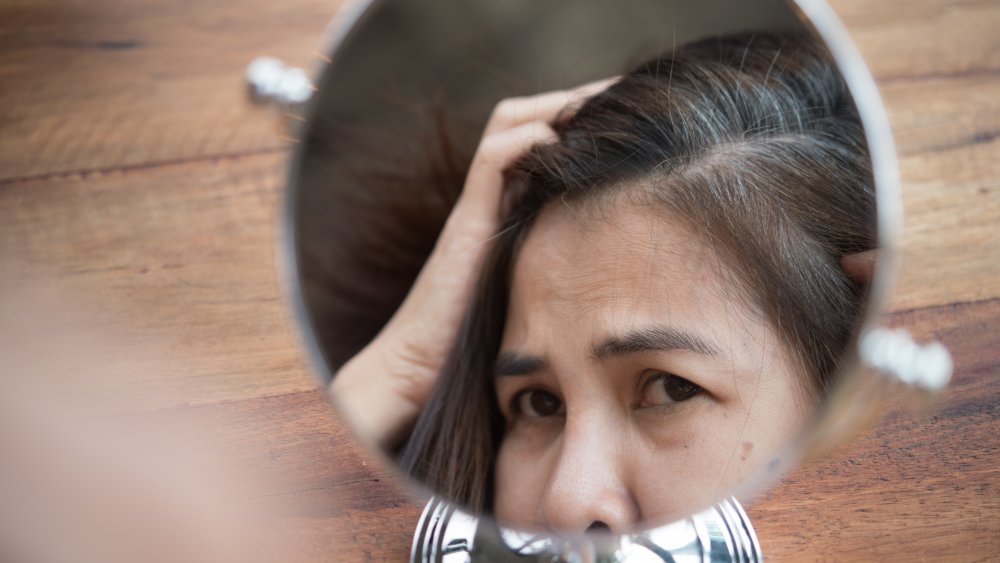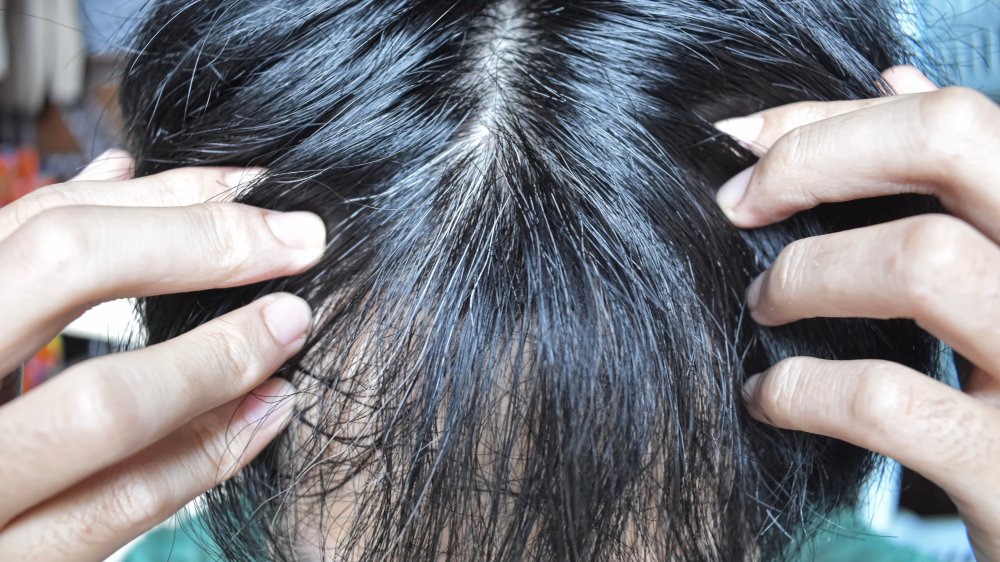Here's What It Really Means When Hair Turns Gray
If you live long enough on this planet, there's one thing you can be sure of. Unless you adopt a shaved-head look, your hair, sooner or later, is bound to start turning gray. You can freak out and try to hide it or you can do like Sharon Osbourne and just embrace it. After all, just a few years back all the trendy kids were dyeing their hair gray, so why not take the chance to rock that silver fox look for free?
According to the Harvard Health blog, hair doesn't actually "turn gray," since a hair that grows in brown will stay brown for its entire lifespan. It's just that our hair doesn't live as long as we do, and once each hair reaches the end of its span and comes out in your brush, it's replaced (if you're lucky) by a new one that grows in its place. The hair follicles that produce the color, though, tend to adopt a more monochromatic look as they age, and they're done producing your youthful color by the time you hit middle age. OnHealth relates that people of Caucasian descent usually begin graying in their mid-30s, those of Asian descent in their late 30s, and those of African descent not until their mid-40s (although this timeline, of course, can vary).
Stress won't cause gray hair
One reason often cited by people dismayed at how early their hair has turned gray (since it always seems too early to confront signs of aging) is stress. In fact, it's a standard part of the parental guilt-trip arsenal, telling your kids, "I grew 10 more gray hairs for every time you talked back/didn't clean your room/flunked a math test/stayed out too late on a school night," and so on.
Sorry, Mom and Dad, science isn't going to back you up on that claim. The worst thing stress can do to your hair is to induce a condition called telogen effluvium which will cause it to fall out at three times its normal rate — which, okay, is not great either. The good news is that the hair will usually grow back. When it does, though, if you've reached that certain age, the new hair that grows in its place may well be a gray one.
There are certain diseases that can lead to premature graying
While the Harvard Health blog says that the vast majority of people will only go gray once their genetics determine that they've reached "that time," there are a few health conditions that may trigger an earlier loss of hair pigmentation. One of those is a deficiency in vitamin B12, which can also trigger hair thinning or loss. B12 is one of the nutrients essential to your daily diet and can be found in meat, shellfish, and dairy, so if you're a vegan who wants to keep your hair color (or your hair), you may need to consider B12 supplements or even injections.
Other less-common conditions that can lead to loss of hair coloring include neurofibromatosis (aka Von Recklinghausen's disease), tuberous sclerosis, thyroid disease, vitiligo, and alopecia areata. This last-named condition again involves hair loss, although the hairs with more pigmentation are more apt to fall out, thus making the grays more noticeable. This may account for cases where hair apparently turns gray overnight.



